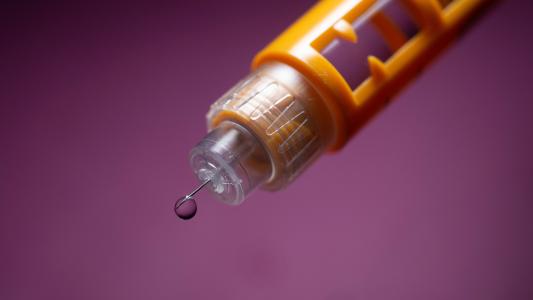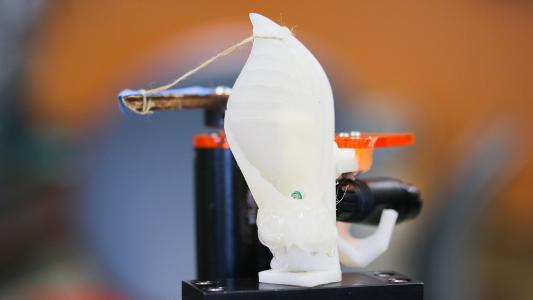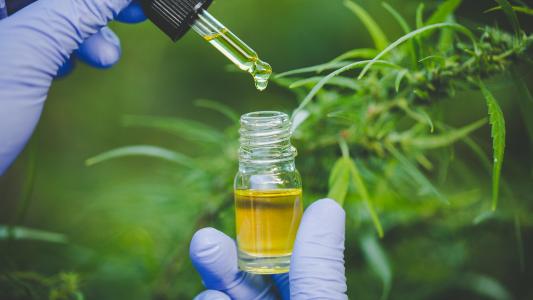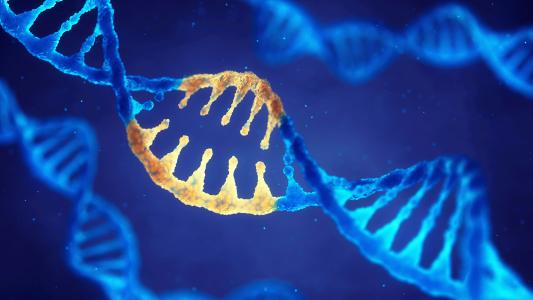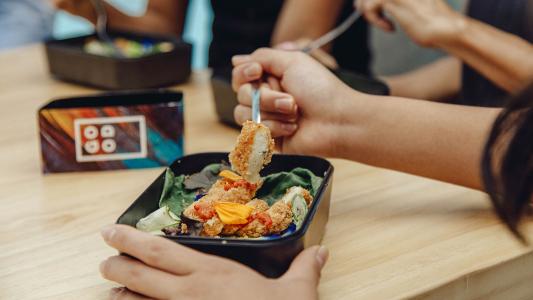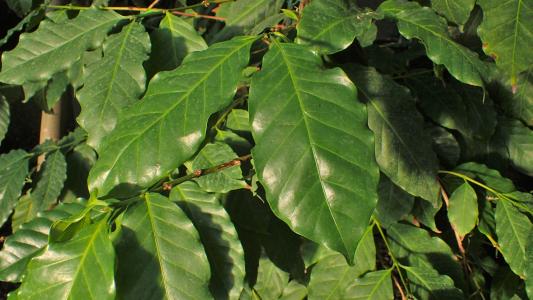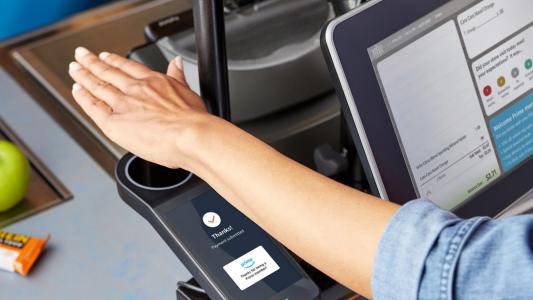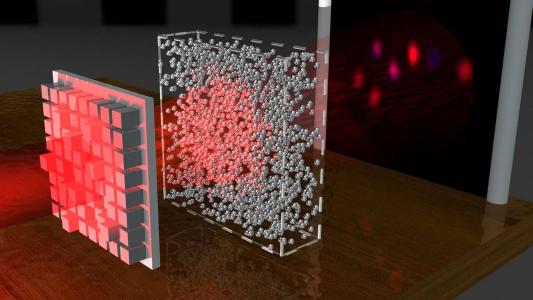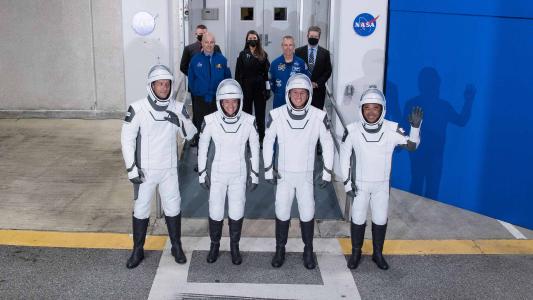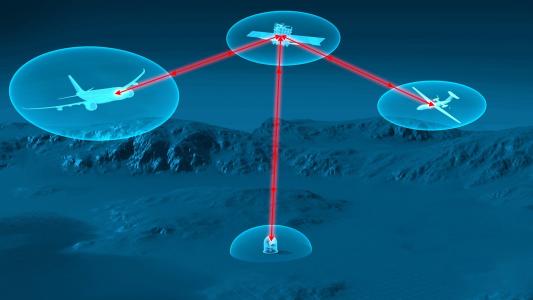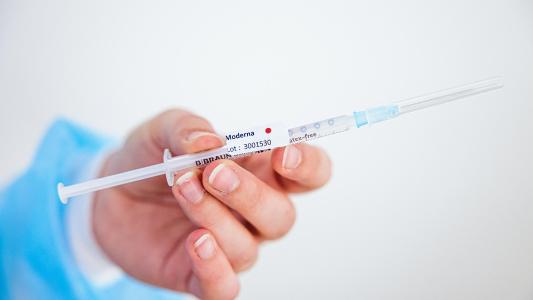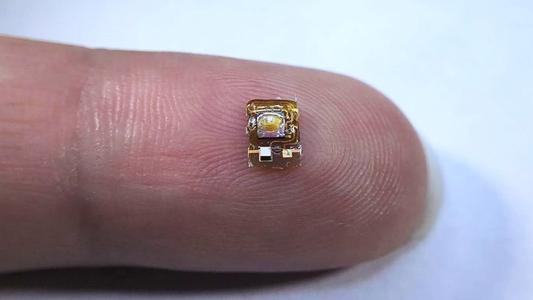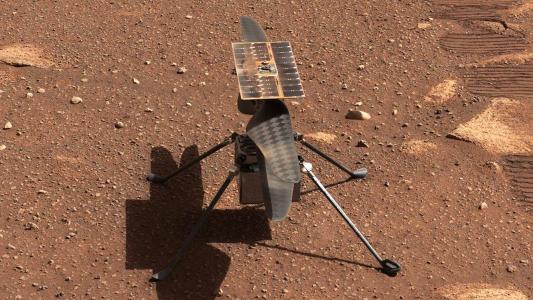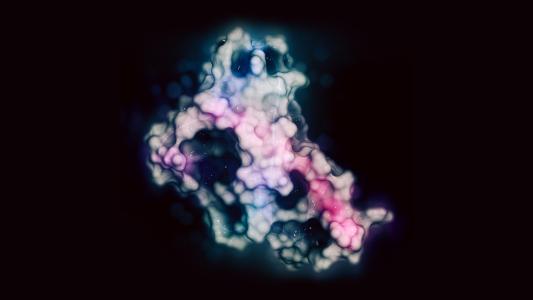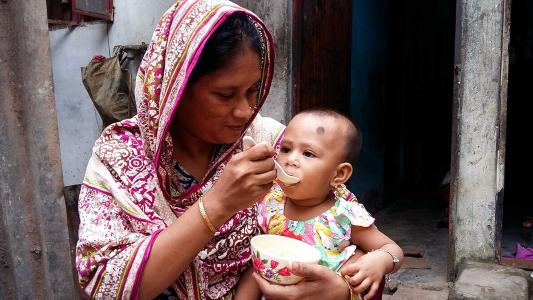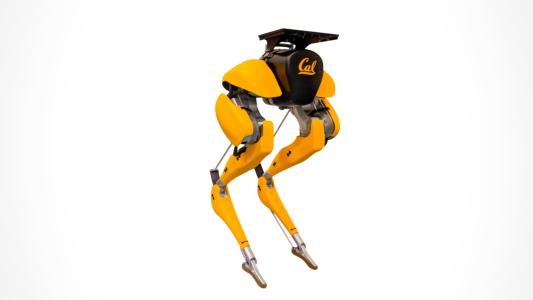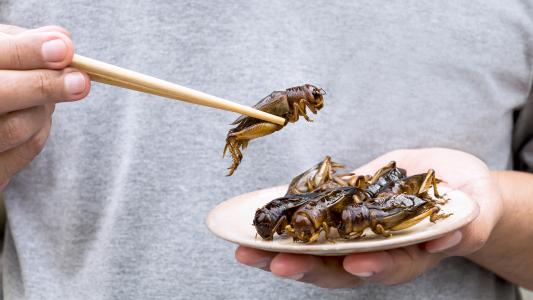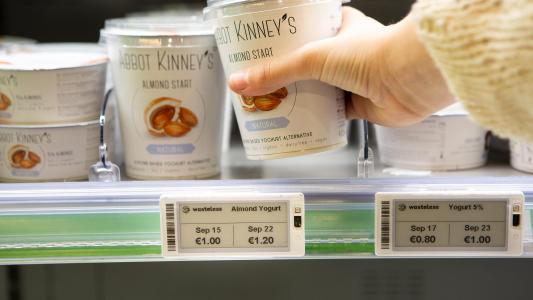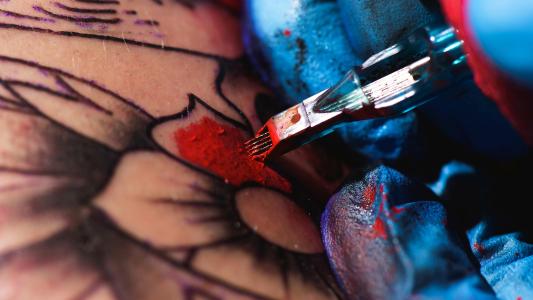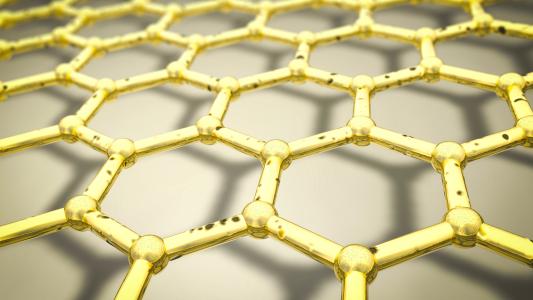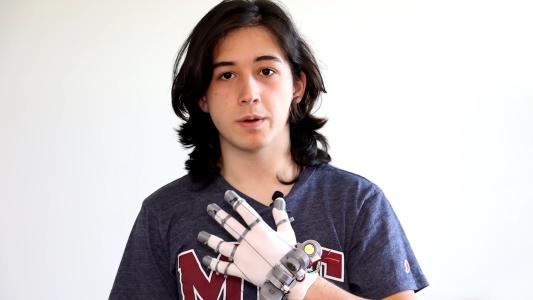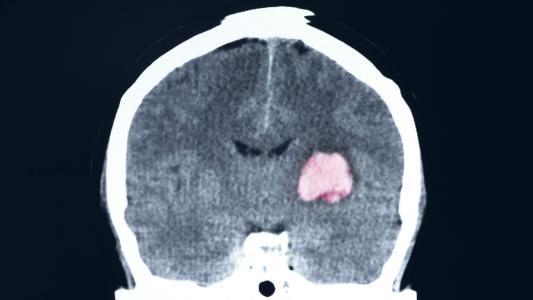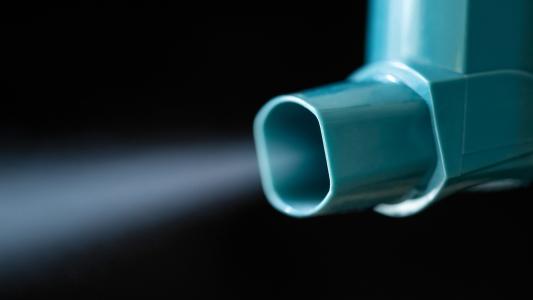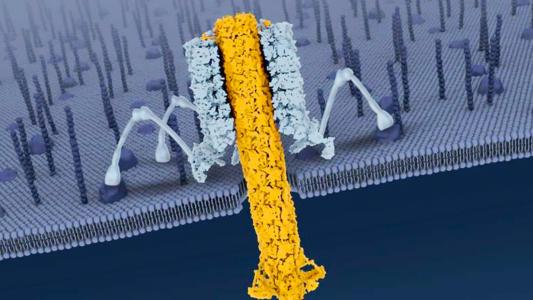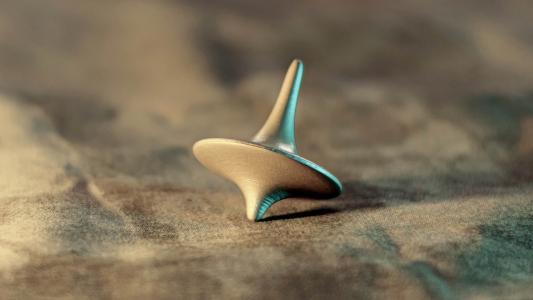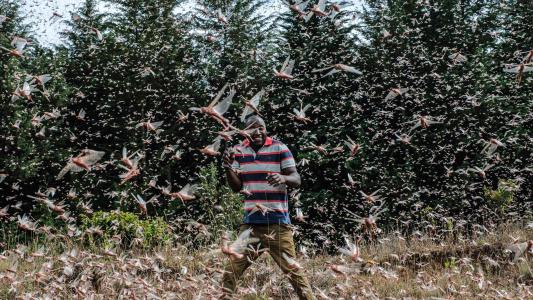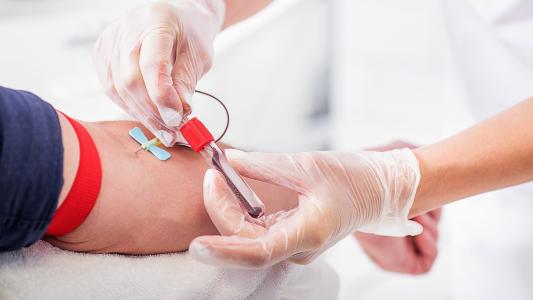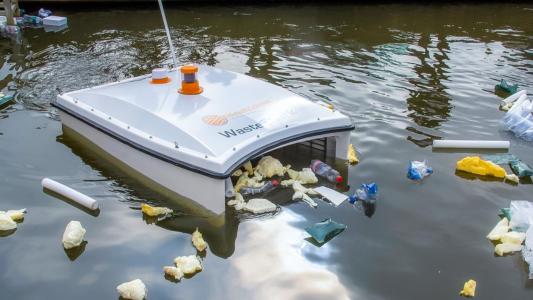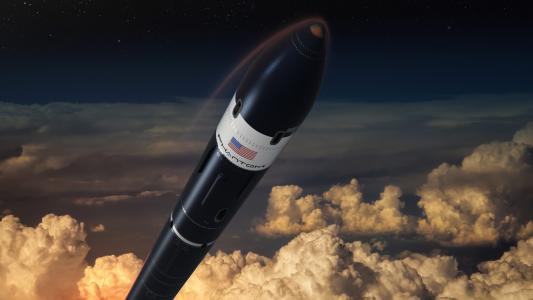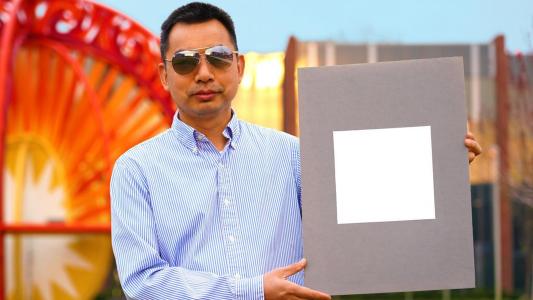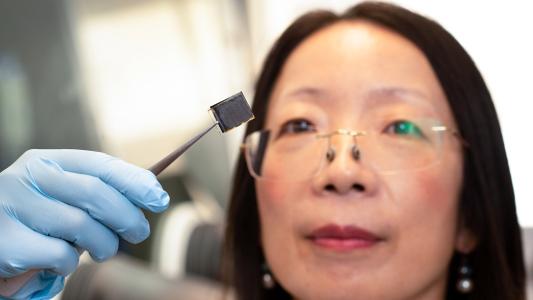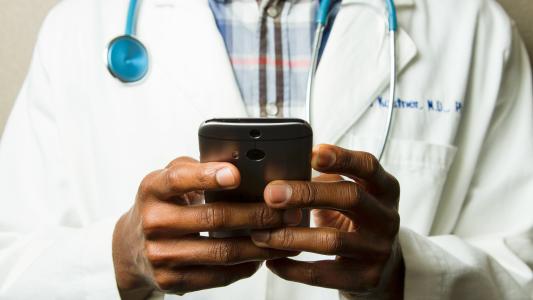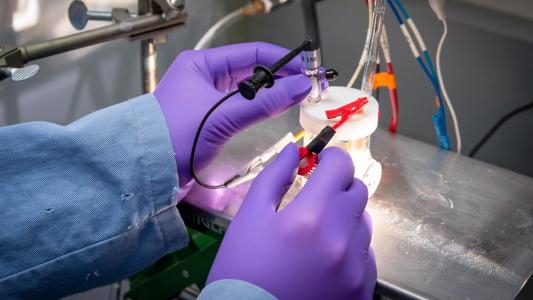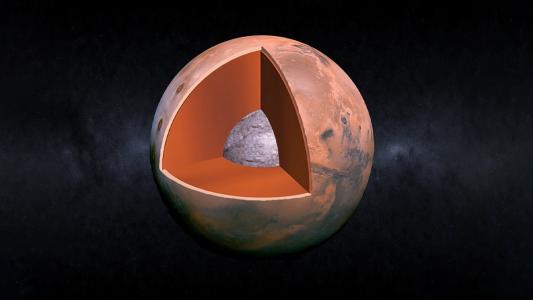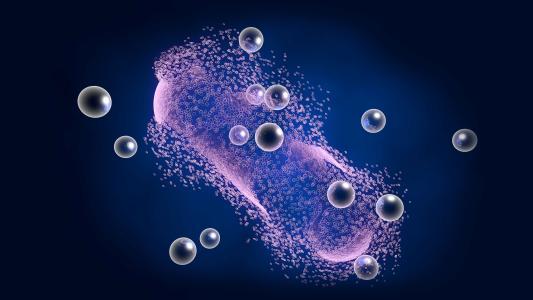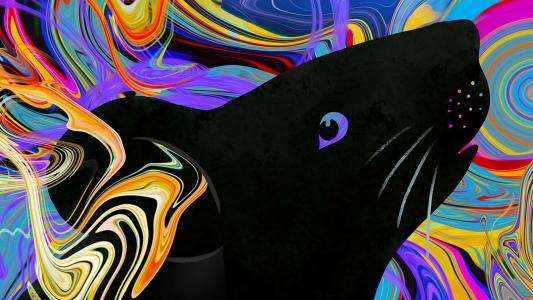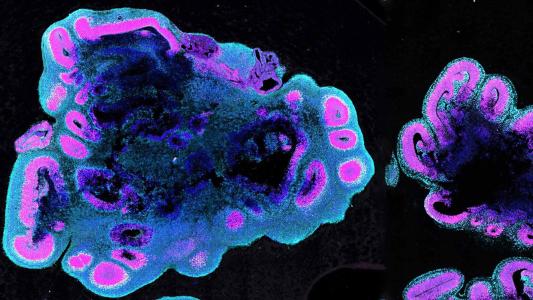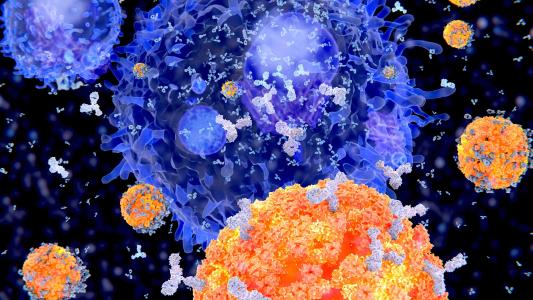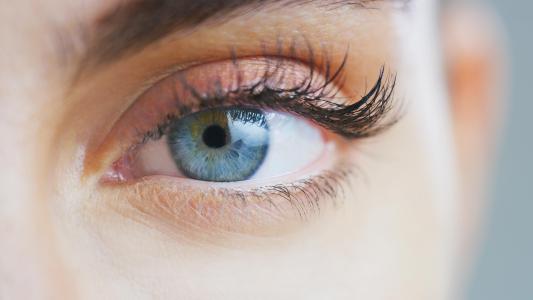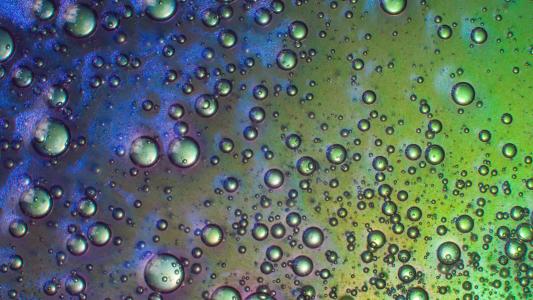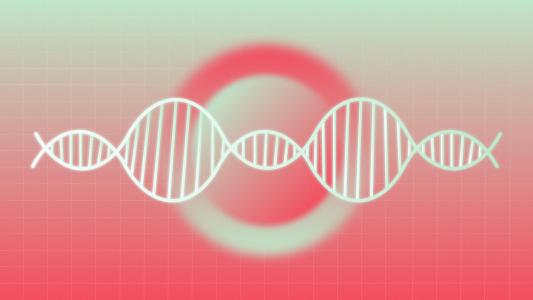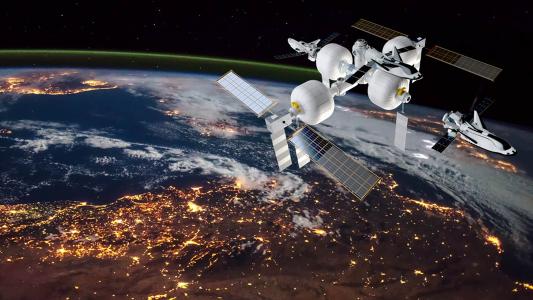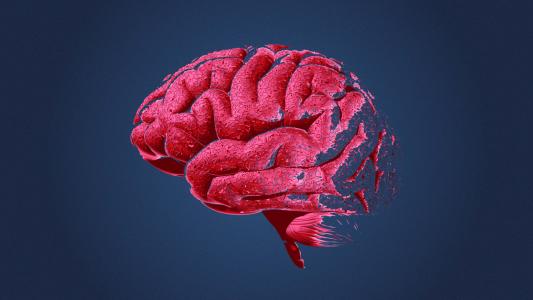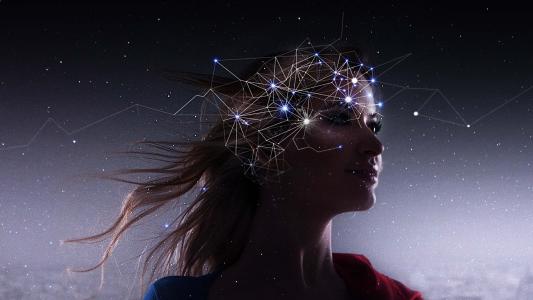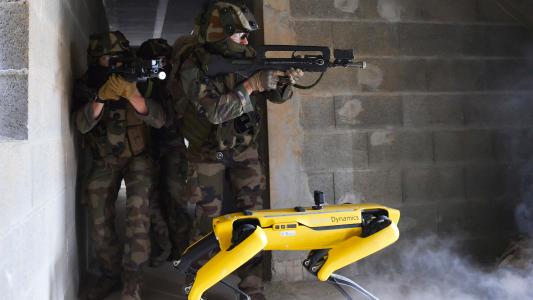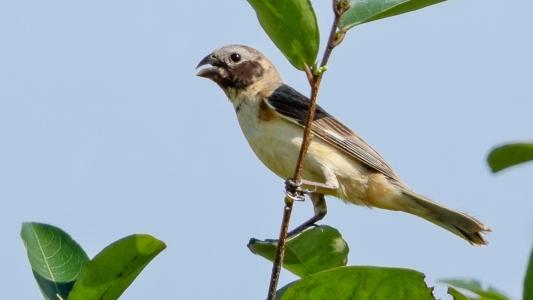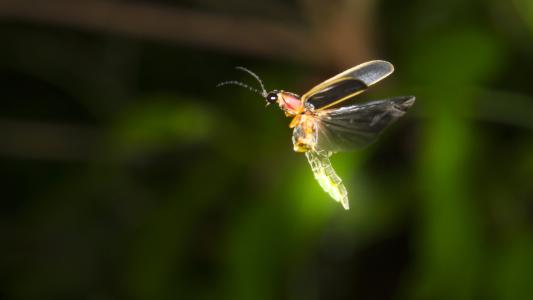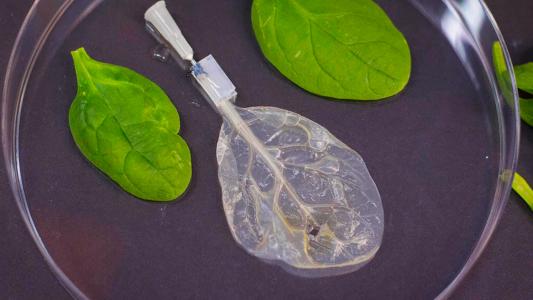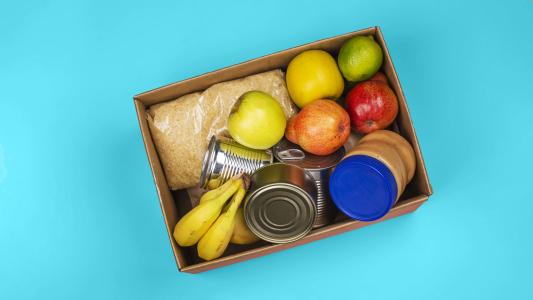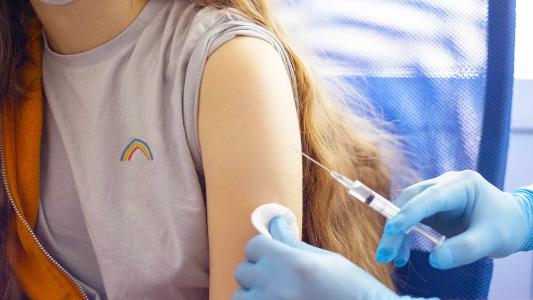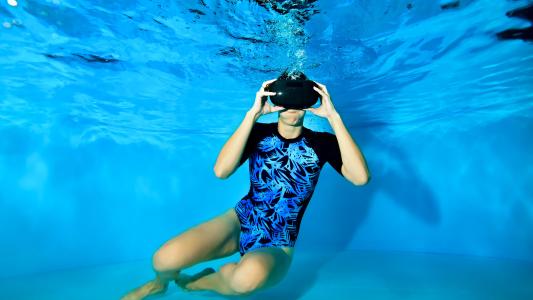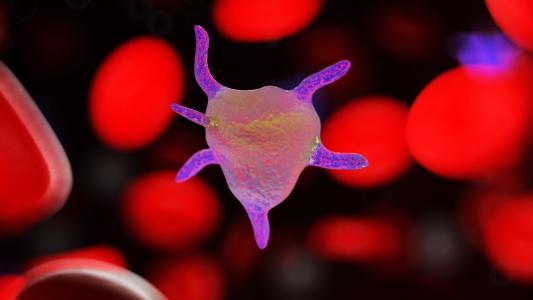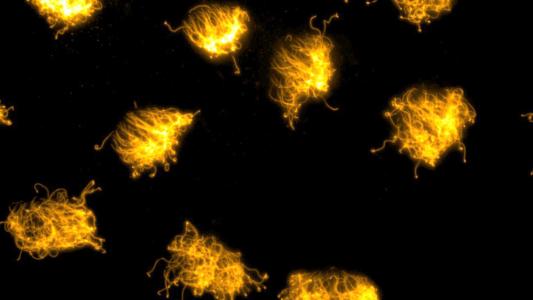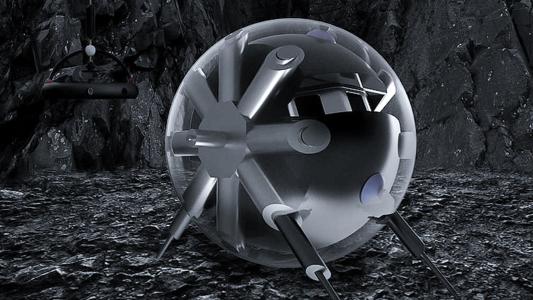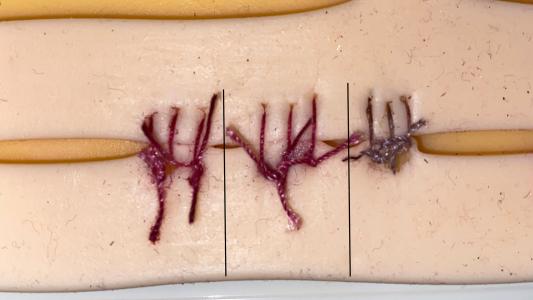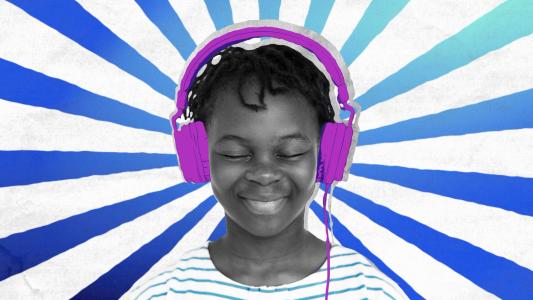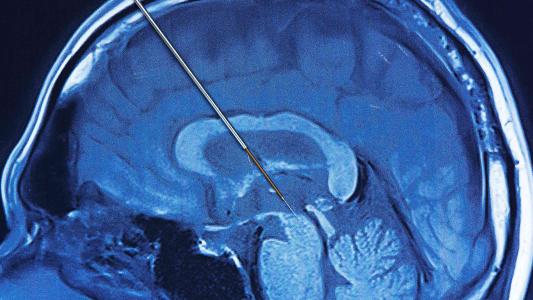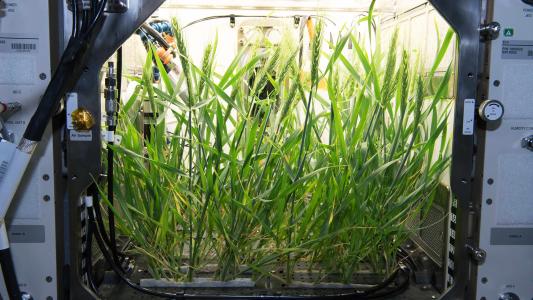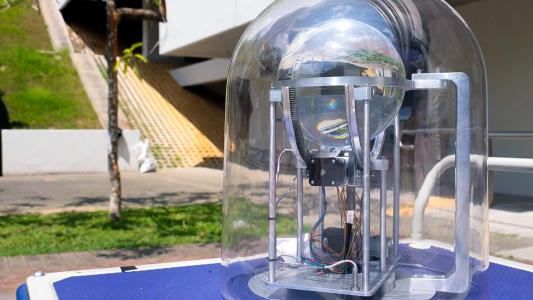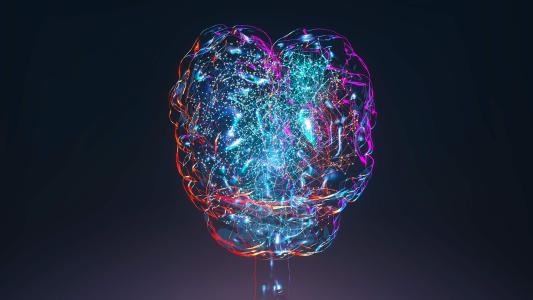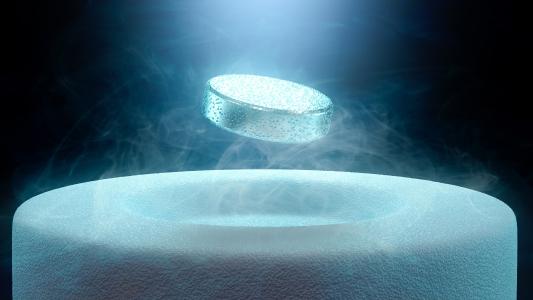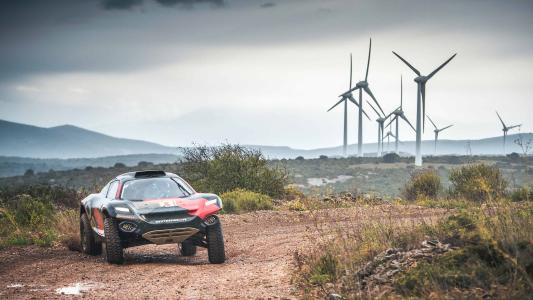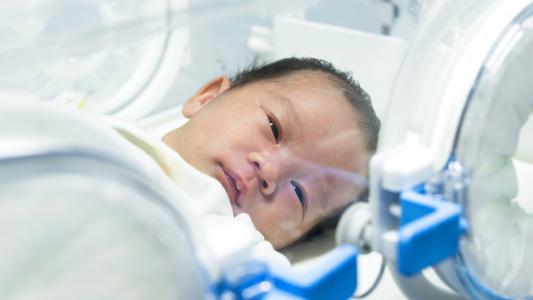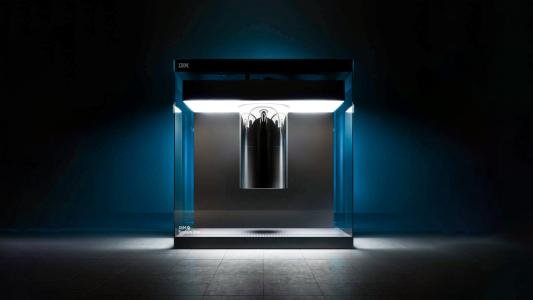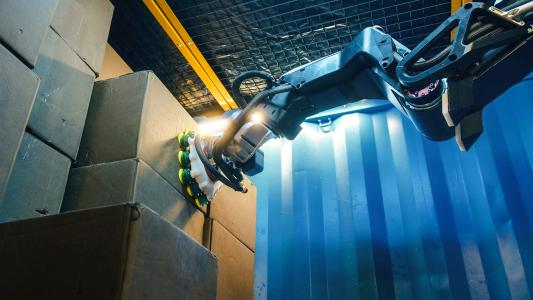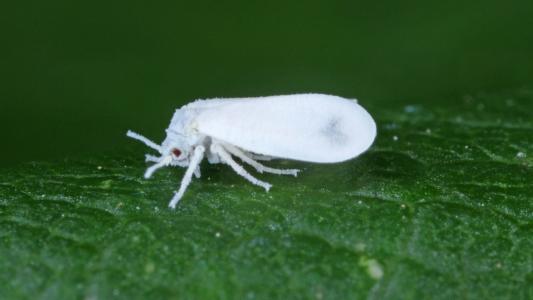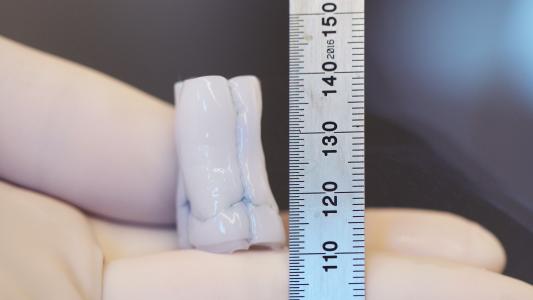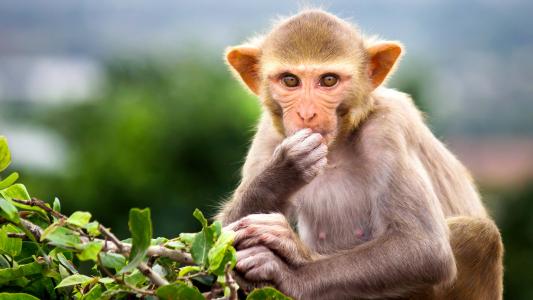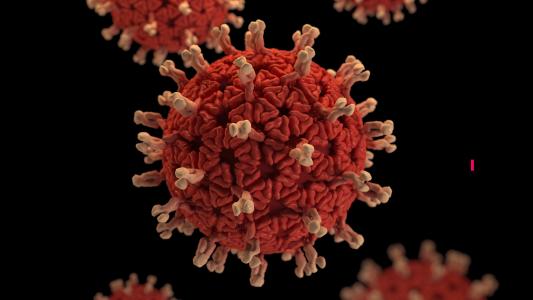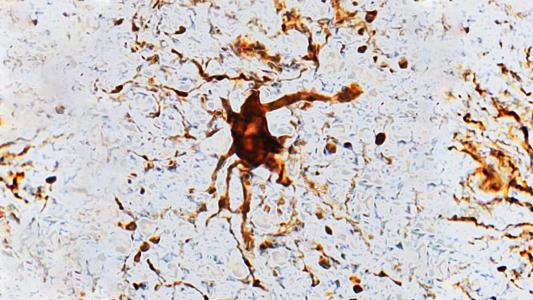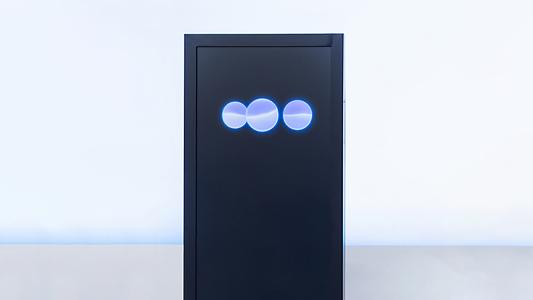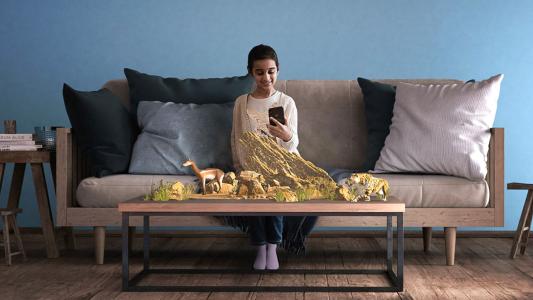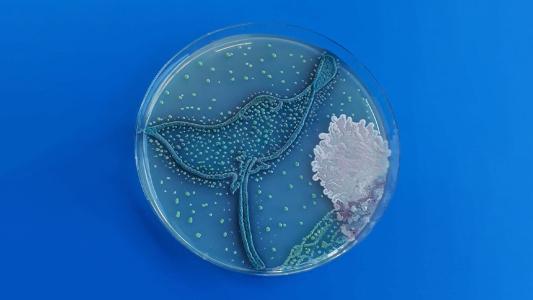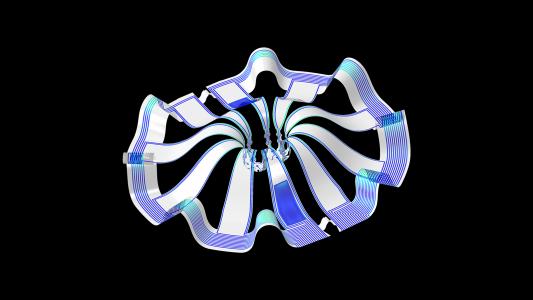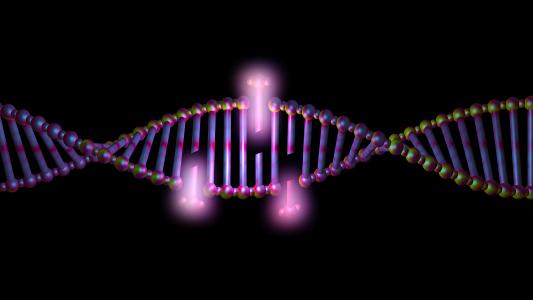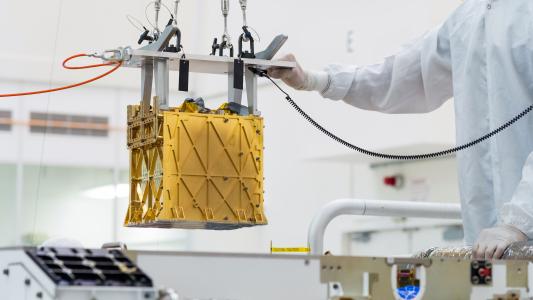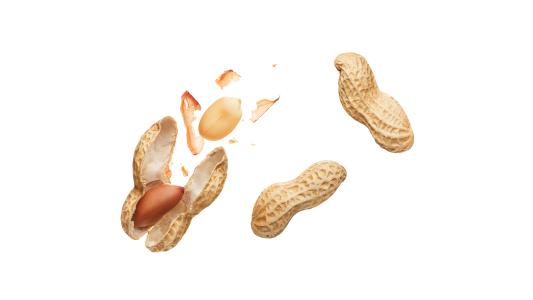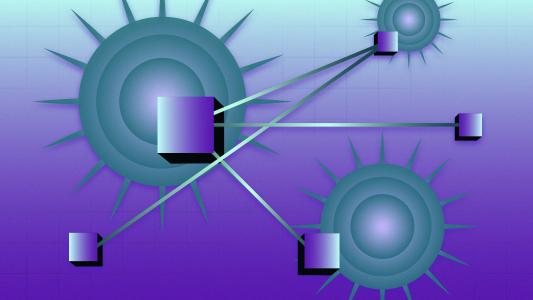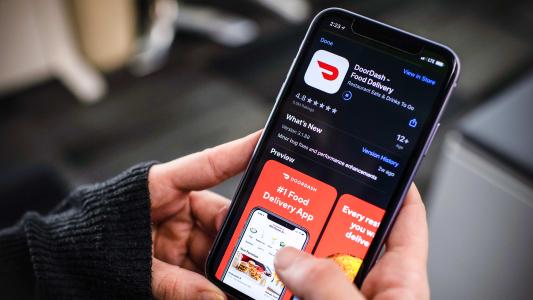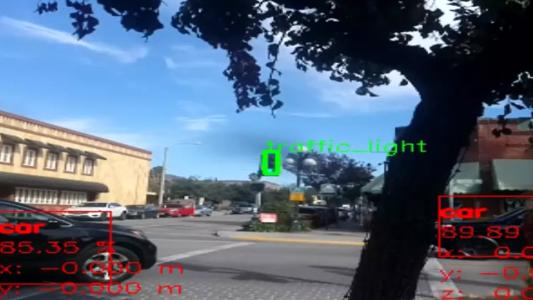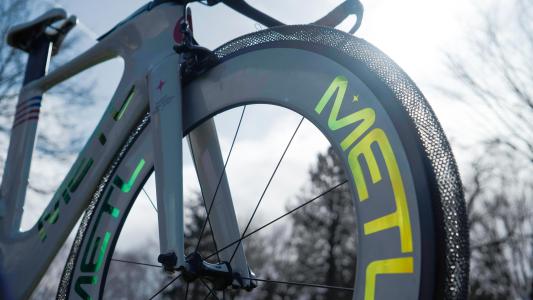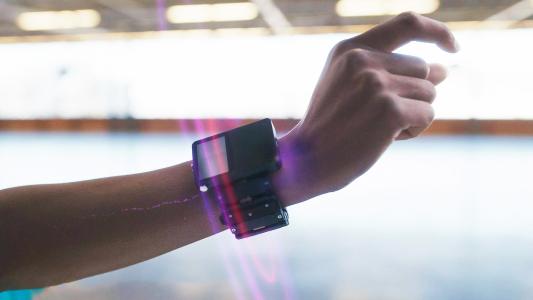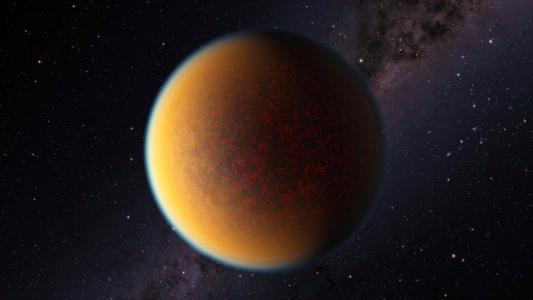Weekly insulin shots may be “game-changer” for diabetes
Daily insulin injections can be burdensome and stigmatized. New clinical trials suggest a weekly insulin regimen can work just as well.
Bat-inspired sound location tech could allow drones to fly solo
Inspired by bat’s ears, researchers at Virginia Tech have created a device capable of pinpointing sound location more accurately than other tech — or our ears.
Drone light show creates scannable QR code in the sky
A drone light show staged in celebration of the “Princess Connect! Re:Dive” video game ended with the drones forming a scannable QR code in the sky.
Can CBD be the next superbug slayer?
In the search for new weapons against superbugs, CBD and antibiotics in combination, as well as CBD alone, may prove to be promising candidates.
Reversible gene editing is on the horizon
In the future, we may be able to turn CRISPR off whenever we wanted.
Cultured meat is now available for home delivery
People in Singapore are the first in the world to have the option of having meals made from cultured meat delivered directly to their homes.
Rare wild coffee species brews hope for coffee’s future
A rediscovered coffee plant that can flourish in warmer climates, according to scientists, may be the future of coffee production, helping future-proof the morning ritual against climate change.
Whole Foods shoppers can now pay with palm scans
Amazon is bringing its palm print-scanning biometric payment technology to eight Whole Foods locations, with plans for further expansion.
Scientists may have found the secret to invisibility
Researchers have developed a unique light wave that, when beamed through an object, makes the object appear invisible to cameras and even the human eye. This could be the key to invisibility.
Astronauts take historic ride in used Dragon capsule
Four astronauts are en route to the International Space Station via a recycled SpaceX rocket and Dragon capsule — a first in spaceflight.
Airbus will test laser communication tech for inflight WiFi
Airbus is developing a laser communication system to increase the security of military operations and bring faster inflight Wi-Fi to passenger planes.
All adults in the US are now eligible for COVID-19 vaccines
In the U.S., anyone over the age of 16 is now eligible for COVID-19 vaccines — a major milestone along the path to herd immunity.
Implantable oxygen monitor could track deep-lying tumors
An implantable oxygen monitor developed at UC Berkeley could allow doctors to measure oxygen levels deep under patients’ skin.
NASA’s Ingenuity helicopter just flew on Mars
NASA’s Ingenuity helicopter has made history on Mars, achieving the first controlled flight on another planet.
Scientists may have figured out how to fight prion disease
Researchers believe they have found a spot on a mutated prion protein that can lead to brain-spongifying disease.
Food supplement appears to “cure” malnutrition in children
A food supplement designed to cure malnutrition in children doesn’t just deliver calories — it also helps promote a healthy gut microbiome.
This new crystal, produced with gunpowder, is stronger than diamond
Researchers have developed hexagonal diamonds — the mineral lonsdaleite — large enough to study in a lab and test their stiffness and hardness.
These robot legs taught themselves to walk
A pair of robot legs were able to teach themselves to walk thanks to a unique twist on reinforcement learning, a common AI training technique.
Solar canals in CA could save 63 billion gallons of water a year
Researchers looked into what it would take to cover California’s canals with solar panels and found that the benefits of solar canals outweigh the costs.
AI reconstructs lost art painted over by Picasso
You can now buy a reconstructed piece of lost art discovered lurking beneath a famous Picasso painting.
We don’t have to eat insects. But feeding them to animals could save the planet
Edible insects could more than make up for the world's protein deficiency while cleaning up waste and using fewer resources. But we don't have to eat them. We can use them in animal feed instead.
Digital price tags auto-discount groceries to avoid food waste
A startup called Wasteless uses dynamic pricing and electronic shelf labels to help minimize food waste at grocery stores.
Tattoo shy? no problem. these tats are made to fade
Ephemeral launched the first-ever made-to-fade tattoo ink, allowing people to get tattoos without committing to them for the rest of their lives.
Color-changing gold tattoo can monitor your health
Researchers have found a way to use gold nanoparticles to help diagnose medical problems by embedding them in an invisible tattoo.
YouTuber builds VR gloves for just $22
YouTuber Lucas VRTech developed a pair of open source, finger-tracking VR gloves that cost just $22 in materials.
Can seaweed save the planet?
A Maine startup is growing vast quantities of seaweed and then burying them at the bottom of the ocean to sequester carbon for carbon offsets.
A modified herpes virus can fight brain cancer in children
In a small clinical trial, using herpes viruses modified to only infect tumors — oncolytic virus therapy — more than doubled the life expectancy of children with aggressive brain tumors.
Inhaled asthma drug accelerates COVID-19 recovery at home
Budesonide — a cheap, inhaled asthma drug that can be self-administered — appears to shorten at-risk COVID-19 patients’ recovery times.
Bacteria nanomachines fire smart missiles that could replace antibiotics
Researchers want to use bacteria-made nanomachines called tailocins to help fight enemy bacteria strains in the human body.
Muon particle’s “wobble” appears to break the laws of physics
The muon, a fundamental particle nicknamed the “fat electron,” has physicists questioning the standard model of particle physics.
How tech helped beat back locust swarms in East Africa
Billions of locusts descended on East Africa in 2020, where new technology helped stop their spread.
Can a blood test help diagnose depression?
An objective blood test could help provide a clearer understanding of the patient’s mental health.
Autonomous trash-eating boats clean up water pollution
New designs in autonomous boats, and a trash wheel that intercepts drifting trash, act as on-the-water trash-eating machines.
This startup’s goal is to be the “Henry Ford of space”
The startup Phantom Space is using other manufacturers’ parts to build its rockets, rather than developing them in-house like most space companies.
The world's whitest paint can cool your house — and the Earth
The whitest white paint reflects up to 98.1% of sunlight, which could make it useful for cooling homes in place of energy-hogging air conditioners.
Hologram pizzeria brings virtual happy hour to a new level
Virgin Media’s hologram dining experience, Two Hearts Pizzeria, let people feel like they were sharing a meal with loved ones located in another city.
Video game reveals your “soft skills” to potential employers
The Scoutible app reveals job candidates’ soft skills, which often don’t translate through resumes and interviews but are essential for success.
App helps families know what to do when someone dies
The Empathy app is designed to help grieving families know what to do when someone dies and then actually guide them through the tasks, step by step.
Human hair makes perovskite solar cells more efficient
Perovskite solar cells featuring a layer of carbon nanodots made from human hair were more efficient and stable than those without the dots.
The future of ‘live’ is hybrid, real-time, and interactive
A new study reveals that audiences still plan to attend virtual events—and in-person live events with virtual features—in a post-vaccine world.
Phone cameras can now measure your pulse and breathing
A team of researchers has developed an algorithm to measure pulse and respiration rate during a telehealth appointment using your device’s camera.
Artificial photosynthesis machine improves itself over time
An artificial photosynthesis device that gets more efficient with time could finally allow us to harness solar energy for uses beyond electricity.
Scientists measure Mars’ core — and it is shockingly big!
For the first time, scientists have measured Mars’ core — and found it is much bigger than expected.
New oral insulin tech replaces needles with nanoparticles
If the success of a new oral insulin delivery system in rats translates to people, it could entice more diabetics to pursue insulin therapy.
Game triggers auditory hallucinations in mice and people
An experimental game that triggers auditory hallucinations in both mice and humans could lead to new treatments for schizophrenia.
A single gene turns on humans' rapid brain growth
Researchers have looked at gene expression in human brain organoids compared to other apes to discover the genetic mechanism crucial to triggering the human brain's rapid growth.
New approach for mRNA HIV vaccine passes first human trial
There is currently no HIV vaccine, but a new technique which produced specific immunity cells in humans may pave the way to one.
Penn scientists correct genetic blindness with a single injection into the eye
Antisense oligonucleotide therapy uses small molecules to alter RNA. Researchers have now used those molecules to alleviate a genetic form of blindness.
Can Hall thruster tech cut the cost of space exploration?
The spacecraft NASA is sending to study the Psyche asteroid will be powered by Hall thruster technology — marking its first use for deep space exploration.
Nobel prize-winning chemist helps invent synthetic mucus
Mucins, the long proteins in mucus, have an array of bacteria-fighting properties. These artificial mucins can act like the real thing.
How scientists finally got gene therapy to work
Gene therapy shows promise for treating diseases and the longstanding mysteries of medical science. But what is gene therapy and how does it work?
Will the next space station be made of fabric?
NASA is considering an inflatable space habitat designed by Sierra Nevada Corporation as a potential space station of the future.
Injectable “glue” helps heal traumatic brain injury in rats
By injecting a “brain glue” into rats, researchers were able to speed up their recovery after a traumatic brain injury.
A major Huntington’s trial has failed. Here’s why there is still hope.
A simple genetic test can determine a person's fate for one of the worst diseases on the planet. But research offers new hope for Huntington's disease.
Robot dog helps military students “survive” combat training
A military school recently used Spot, a robot dog developed by Boston Dynamics, during combat training exercises.
Ex-Walmart employee aims to solve America’s food waste problem with AI
In partnership with Ford
Food waste makes up nearly a quarter of landfill material. A new startup aims to change that by automating the process of trucking produce with artificial intelligence.
Argentina’s songbirds explain a mysterious type of speciation
With the help of a group of songbirds, researchers have uncovered the mystery of an evolutionary process called “sympatric speciation.”
Fireflies may use “musical armor” to keep bats at bay
Fireflies’ primary aposematic signal that they’re poisonous may not be visible to bats, so the bugs appear to have a second, sound-based warning sign.
Spinach skeleton becomes base for lab-grown meat
After spinach leaves were stripped of their plant cells, the skeletons were used as a scaffold for lab-grown meat.
What is the future of wave energy?
The Federal Energy Regulatory Commission has approved the first commercial-scale, utility grid-connected test site for wave energy.
These movers fight food insecurity one home at a time
The nonprofit Move for Hunger works with local moving companies to collect and donate food people would normally throw away during a move.
Pfizer’s COVID-19 vaccine 100% effective in adolescent study
Pfizer’s COVID-19 vaccine was reportedly 100% effective in a trial involving more than 2,000 adolescents between the ages of 12 and 15.
The surprising cure to cybersickness – using VR underwater
Cybersickness is similar to motion sickness, but it comes from using electronic screens like virtual reality. A new study shows that aquatic VR could be the cure.
New cancer treatment uses “hot blood cells” to target tumors
A new cancer treatment combining immunotherapy, photothermal therapy, and modified blood cells was highly effective in mice.
The next generation of living machines: xenobots 2.0
Made from the stem cells of a frog, “Xenobots” are tiny living machines. And researchers have just debuted version 2.0.
This “hamster ball” robot could explore lunar caves
The spherical Daedalus robot may explore lunar caves during future ESA moon missions, looking for places that could potentially host human settlements.
These color-changing sutures can catch infections
Iowa high school senior Dasia Taylor has invented color-changing sutures that can catch an infection early.
“Saylists” use song lyrics to help kids with speech disorders
Apple Music’s new “Saylists” contain songs with lyrics designed to help kids overcome speech disorders in an entertaining way.
Deep brain stimulation: explained
Deep brain stimulation is being studied as a treatment for any number of neurological and psychological conditions. But what is it, exactly?
Space bacteria could help astronauts grow plants on Mars
A brand new species of bacteria has been discovered on the International Space Station — and it could one day help astronauts grow plants on Mars.
Singapore’s solar concentrator funnels daylight underground
This compact solar concentrator could be the perfect daylight harvesting device for Singapore’s underground spaces.
Wireless brain-computer interface moves out of the lab
A new wireless brain-computer interface was able to record and transmit brain signals as effectively as the “gold standard” wired systems.
Electricity transformed the world. Superconductivity could do it all over again.
Scientists are on the hunt for a superconductor that works in higher temperatures and lower pressure.
Extreme E is bringing electric SUV racing to the ends of the Earth
With climate change and gender equity at its core, Extreme E is bringing electric SUV racing to the wild.
Therapeutic bed could help prevent brain damage in babies
Calmer is a therapeutic bed for incubators that simulates a caregiver’s breathing and heartbeat to relieve stress in newborns.
An IBM quantum computer is being built at a US hospital
An IBM quantum computer is being installed at the Cleveland Clinic as part of the organizations' Discovery Accelerator collaboration.
Boston Dynamics unveils a new robot: Stretch
Boston Dynamics’ second commercial offering is a warehouse robot named Stretch that can lift and move 800, 50-pound boxes every hour.
This insect swiped a gene from plants to help itself survive
A plant gene has been discovered in whiteflies, marking the first known example of horizontal gene transfer of a functional gene between plants and insects.
Jets powered by food waste could take off soon
Scientists have devised a method for converting food scraps, animal manure, and used food oil into a type of paraffin that works as jet fuel in jet engines.
Scientists have created a heart valve implant that grows
Children may have heart valve replacement surgery 5 or more times. A lab-grown, growing valve may change that in the future.
AI uses sound waves to read the minds of monkeys
Functional ultrasound tech can be used to map the brain activity of monkeys, suggesting it might be useful for future brain-machine interfaces.
An explosive lake becomes a source of power
Lake Kivu in central Africa is on the verge of exploding. To prevent disaster, Rwanda is using the lake as a source of energy.
A common virus may be the key to a COVID vaccine for young children
Researchers have reverse-engineered a common children’s virus to show the spike protein, potentially leading to a new COVID vaccine for young children.
“Zombie” cells grow in the brain after death
After death, gene expression increases in the brain’s glial cells — and those “zombie” cells could affect how we study neurological disorders.
IBM’s AI debater could help you make better decisions
IBM’s Project Debater is trained to quickly craft well-researched arguments — and the AI debater could one day improve your decision making.
David Attenborough’s AR app puts dinos in your living room
The film David Attenborough’s Natural History Museum Alive now has a companion AR app that brings three extinct creatures to life in your home.
Stunning “agar art” grows pictures with bacteria and fungi
Agar art lets scientists tap into their creative sides by growing microbes into beautiful bioart scenes in petri dishes.
Researchers have built a mini-lab for mini-brains
Researchers have created a “tiny machine” to better study brain organoids, clumps of stem cells that simulate the brain.
It's now possible to diagnose concussions with saliva
Saliva was used to diagnose concussions with 94% accuracy, suggesting that an objective concussion test may finally be within reach.
CRISPR fixes rare mutation for the first time in a live animal
For the first time in a live animal, researchers have successfully reversed a gene mutation, called a “duplication mutation,” by gene editing.
The golden box that could create oxygen on Mars
MOXIE, an instrument designed to create oxygen on Mars from carbon dioxide, is now ready for testing on the Red Planet.
This startup is creating a toothpaste for your peanut allergy
Immunotherapy for allergies can help reduce allergic reactions, but it needs to be daily. Could toothpaste provide a solution?
IBM’s artificial intelligence may help us defeat superbugs
A new AI tool detected 20 viable drug candidates in less than two months
Transforming abandoned oil rigs into artificial reefs
Marine scientists are advocating for abandoned oil rigs to be preserved as artificial reefs to save endangered species.
New black hole image reveals swirling magnetic fields
A new black hole image depicts one of the supermassive objects in polarized light, making it possible to see its magnetic field lines.
DoorDash is now offering COVID-19 test delivery
DoorDash is now offering COVID-19 test delivery in 12 cities, bringing at-home COVID-19 test kits to people the same day they’re ordered.
AI backpack “sees” for visually impaired people
An AI backpack powered by Intel technology “sees” for visually impaired people, letting them know about any potential obstacles in their path.
Airless bike tires made of space-age metal never go flat
In 2022, a startup will begin selling airless bike tires that never go flat because they’re made out of a special NASA-developed metal alloy.
Facebook's neural wristband could replace keyboards
A neural wristband that allows wearers to control AR glasses by simply moving their fingers is under development at Facebook Reality Labs.
A distant exoplanet made itself a second atmosphere
A distant exoplanet, GJ 1132 b, appears to have created a second atmosphere for itself after being stripped of its first.
